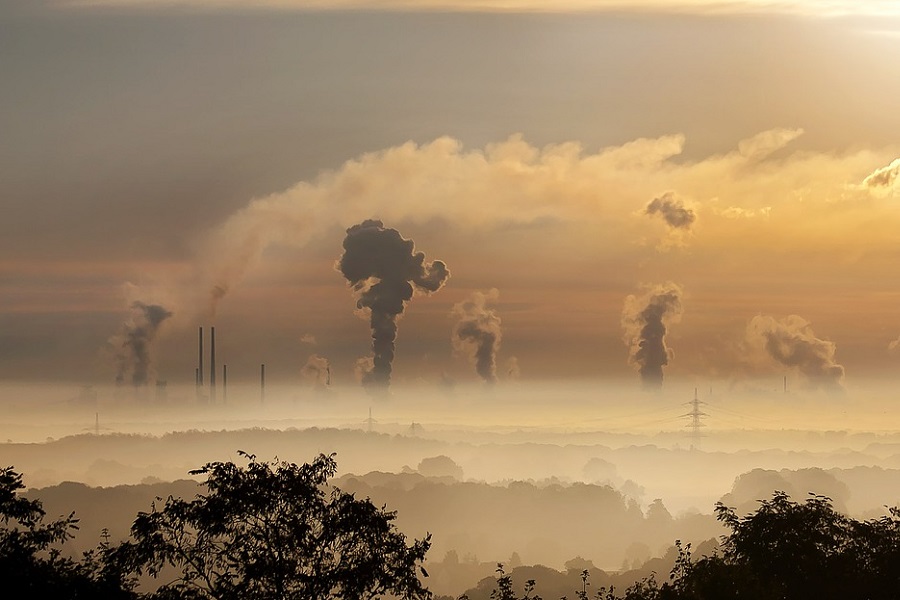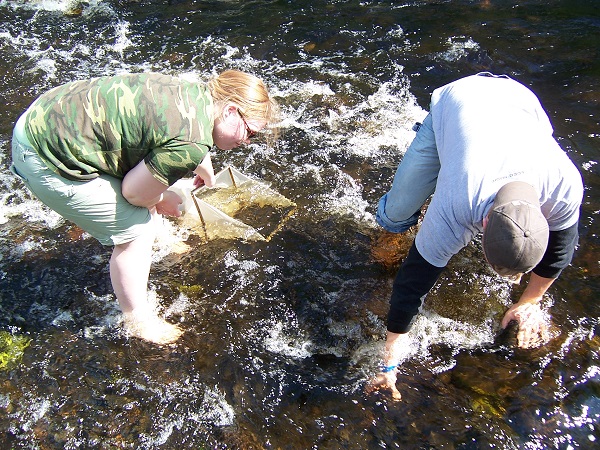
Environmental Health Programs in the US
There are certain professions that are needed everywhere in the world. These professions include medicine, teaching and environmental health. Environmental health is the science that deals with all the aspects of the natural and built-environment that affect the health and safety of humans. It is an area of public health and is closely aligned with environmental science. Environmental health includes many other sciences and technical areas such as toxicology, epidemiology, food protection, occupational health and safety, microbiology, waste management, disease and vector control, housing and risk management. Environmental health is the profession that works to ensure that basic sanitation is maintained in the human environment and it works to prevent disease and increase safety for people. This effort is what allows the quality and standard of living available in much of the world today.
Without the proper disposal of our liquid and solid wastes, the insurance of a safe supply of food, control of disease and vectors of diseases, we would be overwhelmed with acute infectious diseases, shorter life spans and a higher infant mortality rate, as seen in parts of the world where environmental health services have broken down or not been established. Basic sanitation and safety are not available to everyone in the world, but the science, education and technology are available for people to use whenever the local economics, wars or dysfunctional governments will allow changes to take place.

The environmental health profession is used though out all levels of government and in many businesses. Using the United States as an example, the environmental health profession is a part of local public health departments that can cover either a single city, county, county/city or regional department. In the state of Idaho, there are eight regional health districts that divide up the state fairly evenly. In the state of North Dakota, there are examples of all the ways of organizing health departments and a few areas that do not have any local environmental health coverage. In these local health organizations, many of the environmental health professionals are generalist and their duties include most or all of the tasks needed to ensure a clean and safe environment in their area. On any given day these professions could be conducting inspections of food establishments, inspecting for permitting water or sewer systems, inspecting institutions like schools or nursing homes, plus they could become involved with an epidemiological investigation of a disease outbreak or monitoring vector control to prevent an outbreak. This is only a partial list of the duties involved with environmental health at a local health organization. At larger organizations which are generally in the urban areas of the country, the environmental health professions will usually specialize in a skill. This is the way most of the environmental health professionals working at the state level do their job. In these state organizations, the tasks are for items that affect the entire state or they lend their expertise to the local health organizations. An example of a state level task would be monitoring and controlling air or water quality.
The U.S. federal government has several departments and agencies that employ environmental health professionals. Some of these agencies are the Food and Drug Administrations (FDA), the Centers for Disease Control and Prevention (CDC), Environmental Protection Agency (EPA) and the United States Public Health Service (USPHS). The U.S. military also uses environmental health professions. For an example, when the Army has to establish a remote operation base, they require almost all of the same services as a city, such a clean water supply, waste disposal and safely prepared food.
The USPHS is the commission core for the public health field. This group is made up of commissioned officers that are not military but similar in many aspects and are equivalent in rank and duties. These officers serve as needed with other federal agencies like the CDC and Coast Guard.
There are also international organizations that use environmental health professions. The World Health Organization (WHO), part of the United Nations, has many career areas in the environmental health field. A few of these are water sanitation specialist, disease prevention specialist and occupational health and safety specialist.
Businesses and other private organizations employ environmental health professionals at the local, regional, national or international levels. Many restaurant chains have their own food inspectors. Companies that makes food products have someone with sanitation and food safety responsibilities. The field of occupational health and safety is used by even small companies to protect their employees and to comply with government regulations.
In the U.S. there are presently thirty undergraduate and nine master’s level graduate programs that are accredited by the National Environmental Health Science and Protection Accreditation Council (EHAC). This accredited ensures that these programs produce graduates with the education and training needed to work competently in the environmental health profession at graduation. There are many universities that offer doctorate degrees in environmental health or in closely related areas but these programs are not accredited by EHAC due to their high degree of specialization and variability.

A bachelor degree usually requiring four years of study is needed to start a career in the environmental health profession. The education required for working in the environmental health profession begins with general science courses in biology, chemistry, math and physics and then move on to more advanced science courses. These course include toxicology, epidemiology, statistics, microbiology and organic chemistry. A large variety of more technical courses will be offered by the program which will be used to develop skills and technological applications of environmental health. These can include topics like air quality, food protection, water and wastewater management, solid and hazardous waste management, vector control, occupational health and safety, hydrogeology, risk analysis and institutional health. Master’s degree programs usually require the same basic training in environmental health sciences but they can be more specialized and advanced. Some may offer training in the management of environmental health organizations.
There is a high demand for graduates with environmental health degrees from all levels of education. The environmental health field is growing faster than most other science related professions and at the same time many of the professional are reaching retirement age. The need for graduates with a doctorate in this area is in high demand with teaching positions becoming critical to keep up with the need for graduates with bachelor degrees. The higher levels of governments and business are constantly looking for graduates with advance degrees.
The Association for Environmental Health Academic Programs (AEHAP) is an organization dedicated to supporting environmental health college programs, their faculty and especially their students with information about the environmental health profession, college programs and scholarship opportunities. AEAHP can be contacted at their website, www.aehap.org, or email at info@aehap.org or by telephone at 206.522.5272. Information about program accreditation requirements can be found at the EHAC website http://www.ehacoffice.org. Additional information about the environmental health profession is available from the National Environmental Health Association (NEHA) at their website www.neha.org.
Lynn Burgess, Ph.D.
Professor of Biology, INBRE Project Director, Director of the Environmental Health Program, Dickinson State University
